
Sound Mixer
In his exploration of the cultural dynamic between East and West, Adolf Muschg, the most significant Swiss writer since Frisch and Dürrenmatt, searched for the other in himself in order to understand otherness.
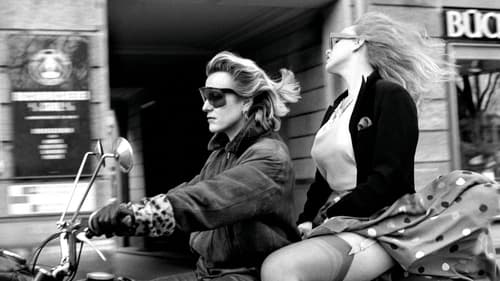
Sound
She was a muse, model and performer – a star, dazzling and intense. Lady Shiva managed to rise from street prostitution to the top. She lived in the fast lane and died tragically young. Her dream was to become a singer. With her companions, we trace her life during a vibrant time that kindles a yearning and provokes until today. The story of a woman’s meteoric fate and a great dream. An irrepressible desire for freedom in all its beauty and destructive force - and a stirring friendship and love.

Sound Re-Recording Mixer
Klaus Rozsa, a well-known and politically active photographer, lived in Zurich for decades as a stateless individual. All of his applications for naturalisation were refused on political grounds. In 1956 he fled Hungary, growing up in Switzerland with a Jewish father who had survived Auschwitz and Dachau. Due to the extreme proximity of such a fate, the camera led him repeatedly to places where injustice was done. It was this particular quality of his camerawork that proved fateful for him.

Sound Director
An analysis of the current state of democracy in Switzerland

Sound
Fantasizes an 'Old' Middle East, wherein communities were not divided along ethnic and religious lines; a Middle East in which even metaphorical borders had no place

Sound Re-Recording Mixer
The father tends his large garden with the utmost precision. The mother irons shirts and regrets that the father never wears T-shirts. The father likes order, always knows best, and has everything under control. The mother prays and talks of her loneliness. The two are fundamentally different, have opposing views and interests, and have been married for 62 years. Closely knit yet poles apart: this is the ambivalent standpoint from which Peter Liechti turns his lens on his elderly parents and the story of their marriage. Alongside conversations that shift from slapstick to insanity and observations of daily life in his parents’ cramped, lower middle class apartment, a puppet theatre is also established as a second location. This forms the stage for scenes between mother and father to be reenacted by rabbit puppets; as a puppet, the son can also react in explosive fashion.

Sound Editor
The father tends his large garden with the utmost precision. The mother irons shirts and regrets that the father never wears T-shirts. The father likes order, always knows best, and has everything under control. The mother prays and talks of her loneliness. The two are fundamentally different, have opposing views and interests, and have been married for 62 years. Closely knit yet poles apart: this is the ambivalent standpoint from which Peter Liechti turns his lens on his elderly parents and the story of their marriage. Alongside conversations that shift from slapstick to insanity and observations of daily life in his parents’ cramped, lower middle class apartment, a puppet theatre is also established as a second location. This forms the stage for scenes between mother and father to be reenacted by rabbit puppets; as a puppet, the son can also react in explosive fashion.

Music

Sound Editor

Sound Re-Recording Mixer
Working at the limits of what can easily be expressed, filmmaker Peter Mettler takes on the elusive subject of time, and once again turns his camera to filming the unfilmable. From the particle accelerator in Switzerland, where scientists seek to probe regions of time we cannot see, to lava flows in Hawaii which have overwhelmed all but one home on the south side of Big Island; from the disintegration of inner-city Detroit, to a Hindu funeral rite near the place of Buddha's enlightenment, Mettler explores our perception of time. He dares to dream the movie of the future while also immersing us in the wonder of the everyday. THE END OF TIME, at once personal, rigorous and visionary, Peter Mettler has crafted a film as compelling and magnificent as its subject.

Sound Editor
Zurich-born Hugo Koblet was the first international cycling star of the post-war period. He was a stylist on the bicycle and in life, and a huge heartthrob. Koblet had a meteoric rise and won the Giro d'Italia in 1950. Once he had reached the zenith of his career, Koblet was put under pressure by overly ambitious officials and ended up ruining his health with drugs. In 1954, he married a well-known model and they became a celebrity dream couple. After his athletic career ended, Koblet began to lose his footing. Threatened by bankruptcy, he crashed his Alfa into a tree.

Sound Designer
In his most recent work, Christian Frei turns to an age-old dream of man: to leave our planet as a «normal person» and travel into outer space. For 20 million dollars, the American Anousheh Ansari was able to fulfil this childhood dream. This documentary follows her journey into space and shows everyday life as it is on the International Space Station.

Sound Re-Recording Mixer

Sound Designer

Sound Editor
Christian Frei's documentary traces the tragic tale of the giant Buddhas of Afghanistan's Bamiyan Valley, which stood as monumental landmarks for 1,500 years until 2001, when the Taliban declared that all non-Islamic statues in the country be destroyed. Despite international protest, the statues were blown up. Through interwoven narratives from past and present, Frei's film sheds light on the disturbing consequences of religious fanaticism.

Music
During the summer of 1968, students from all over Mexico gathered in the capital to demand democracy. The Olympic Games were about to be held and the government, chaired by Gustavo Díaz Ordaz, offered a brutal response in the form of repression, causing hundreds of deaths.

Sound
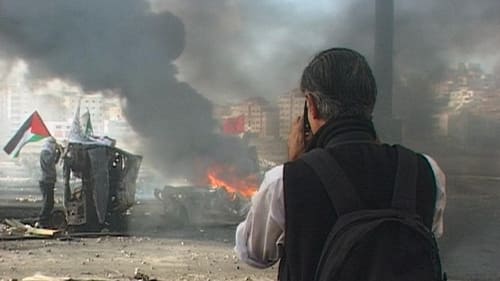
Sound Editor
Documentary about war photographer James Nachtwey, considered by many the greatest war photographer ever.

Sound Editor
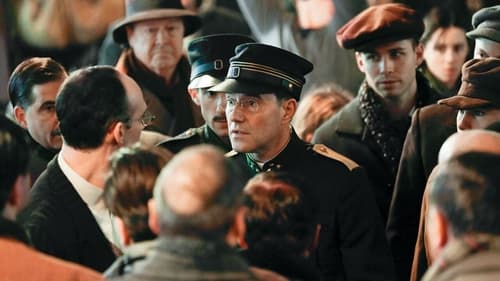
Sound
The Grüninger case from Switzerland. This is a documentary about a police officer who showed civil courage back in the forties when he led many refugees fleeing German Nazi terror immigrate to Switzerland, although he was advised not to do so. Grüninger later was sued by the state of Switzerland, lost his job and died in the early seventies. The film constructs a just lawsuit with eye-witnesses and thus fully legitimates what Grüninger did.

Sound Director
A look at the entire process of creating and developing Patrice Chéreau’s third staging of "In the Solitude of Cotton Fields" by Bernard Marie Koltès with Pascal Greggory and Chéreau himself. From the first reading around the table through the first contact with the performance space, rehearsals and lighting to opening night, the entire creative process unfurls in front of our eyes. The film shows us the evolving and ongoing dialogue between Greggory and Chéreau, a dialogue full of crises and magical moments of harmony and insight via which the truth, intensity, complexity, mystery and depth of Koltès’ text gradually emerge to form an implicit bond between these two men. The film also shows Chéreau directing rehearsals for Mozart’s "Don Giovanni" in Salzburg, revealing both the unity of and profound differences between his opera and theater work.
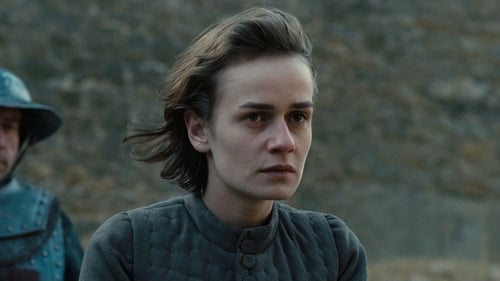
Sound
前編「ジャンヌ/愛と自由の天使」に続く後編。ジャンヌ・ダルクの活躍により王座に就いたシャルル。彼女は尚も祖国のため戦いを続けるが、やがて貴族たちの不満を買い、教会による不当な裁判によって火あぶりの刑に処せられ、その波乱に満ちた壮絶な生涯を閉じる。製作費に460万ドルをかけ、壮大なスケールで歴史的事実を史実に忠実に描いた本作は、アカデミー特別賞、撮影賞、衣装デザイン賞を受賞した。

Sound Mixer
The story of a woman who goes on strike: in a fit of anarchic revolt she simply decides to stay in bed – and refuses, like some distaff Oblomov, to see to the thousand and one chores that await her.

Sound Editor
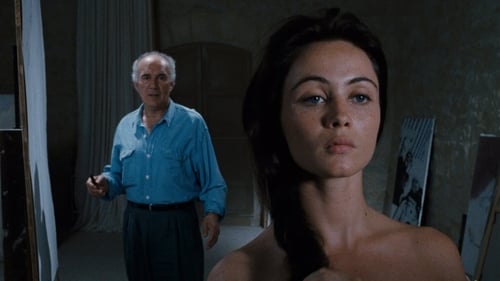
Sound
バルザックの『知られざる傑作』を原作に撮った、ジャック・リヴェット監督作品。孤高の画家フレンホーフェルは、自らの最高傑作“美しき諍い女”を描こうと妻をモデルにするが完成直前に破棄してしまう。そして10年後。彼の前に、若いモデル、マリアンヌが現れた事から彼は再び“美しき諍い女”の仕上げにとりかかるが……。4時間にも及ぶ上映時間の作品でありながら、全くその長さを感じさせない傑作。セリフの全くない、デッサンを描くシーンでの鉛筆の音だけが響きわたる画家と女との緊張感溢れる場面、そして女(=人間)の本性をキャンバスに描き込むという本作のテーマが露になる衝撃的なラスト・シーンと、その奥深い哲学的思想には思わず感服してしまう。この作品は、ビデオ化になる際に映画公開時のオリジナル・バージョンの4時間版と、131分のショート・バージョンの2タイプが発売されたが、何と言ってもオリジナル4時間版をお勧めする。

Sound
When the snow melts and the hills of Appenzell are dotted with green and white, buckets of water slowly make their way up and down the slope. After a time, the gentle movement turns into violent swaying. Shots ring through the air, the buckets are punctured. Slowly the water begins to flow. This is the high point of a ritual that begins deep within the bowels of the mountain. Then trails of water spurt through the air to the thawing slopes and the water begins to gush, nearly causing the well in the valley to overflow.

Sound
The film is set to bring forward once again the well-worn images of the summit talks between Reagan and Gorbachev in Geneva. It is a reproduction of the days during the summit. On the one hand, pictures are gathered from the perspective as an onlooker in Geneva, on the other hand, the old television footage is processed.

Sound
An arsonist tries to shake up the despairing inhabitants of a village who can't communicate with each other.

Sound Mixer
Without knowing it, Alfred and Julia live in a land of pure invention. It is the richest and most beautiful land in the world. From a height, this land looks like a piece of felt, from close up like a clean and tiny park. The footpaths are lined with benches and the streets with banks. Alfred and Julia have been married for 8 years, are childless, and live on the 16th floor of a new building. Thanks to their various crises, they have got to know each other somewhat better, but their most outstanding characteristic remains their mediocrity. On Friday, August 12th 1977, a mysterious epidemic breaks out in their country. The mass media ensure that the news is widely broadcast. The authorities order a ban on information, but those concerned break their imposed silence. On Sunday evening, it becomes known that the epidemic was nomore than a kind of "dress rehearsal" for a real emergency. Alfred and Julia continue to live in a land of pure invention - but now they are conscious of the fact.

Sound
Voted for in the 2012 Sight & Sound poll

Sound
The allotment gardens on the outskirts of the city of Zurich provide hundreds of unpropertied men and women with a home which they are unable to find in the impersonal rented blocks in which they live. The gardens represent their hobby, their freedom and their living space, which exists side by side with hard work. They cannot however own these "homes" and the film shows the chronicle of the events which took place in 1976 - 77 when construction of the Zurich wholesale market hall destroyed 150 gardens and made many people "homeless". This portrait of a group is complemented by the stories of three individuals.





















